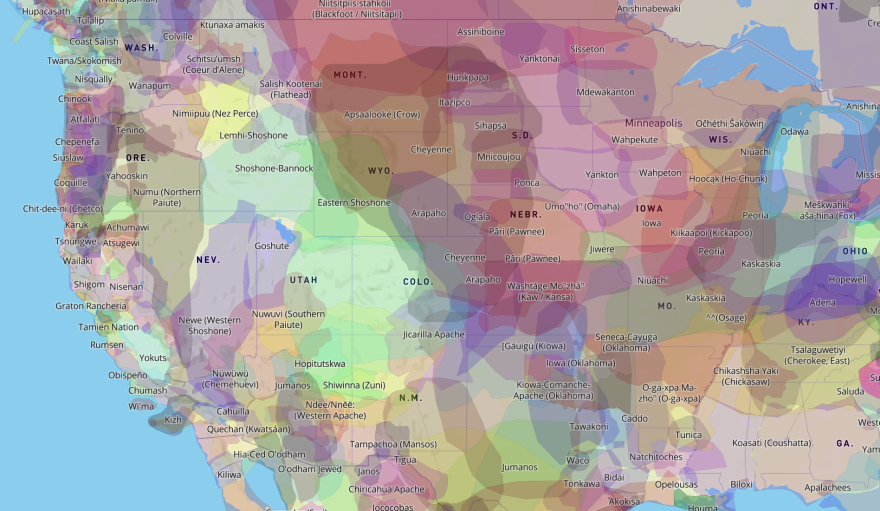Monday was Indigenous People’s Day: a day to celebrate Native American history, resilience and sovereignty and recognize the continuing legacy of colonization.
For some institutions, that can mean acknowledging that its land once belonged to Native peoples, but experts say some well-intentioned statements can actually do harm.
That's why the Association of Indigenous Anthropologists wants a hiatus of “land acknowledgements.”
Richard Meyers is an anthropologist who’s been with the association since its inception and directs graduate studies at Oglala-Lakota College in South Dakota. He says acknowledgement is good, but can also be a fall-back that lacks real change.
“It doesn’t really dig at the heart of the matter of what’s going on. What are the inequities and the injustices?” he said. “It’s almost like a politically correct attempt at addressing a wrong by way of a quick fix.”
Meyers says South Dakota State University has gone further than a statement, putting money earned from its land ownership towards Native student education. But he says such institutions need to give tribal and Indigenous groups a seat at decision-making tables and power to make choices over that land.
Short of that, Meyers said, those "good intentions don’t necessarily manifest into the reality of the intention, but transform into a different agenda.”
A group of three anthropologists recently wrote about reasons why the land acknowledgements don’t go far enough in The Conversation.
They said the acknowledgements can make colonization seem like ancient history that doesn’t still affect people today. They wrote that the statements also often fail to acknowledge how much trauma and death came with taking that land.
“Because non-Indigenous people are generally unaware of this trauma, land acknowledgments are often heard by Indigenous peoples as the denial of that trauma,” they wrote. “This perspective is reinforced by a tendency to cast Indigenous peoples as part of prehistory, suggesting that the trauma of dispossession, if it happened at all, did not happen to real or wholly human people.”
Ultimately, that group says land acknowledgements aren’t a bad thing when done correctly. But they need to respect Indigenous nations who claim the land, accurately portray how the land was taken and chart a path forward. They say returning land should be part of that discussion.
“There are many creative ways to take restorative measures and even to give land back, such as by returning U.S. national parks to the appropriate tribes. Following from this, land acknowledgments must reveal a sincere commitment to respecting and enhancing Indigenous sovereignty,” they wrote.
“If an acknowledgment is discomforting and triggers uncomfortable conversations versus self-congratulation, it is likely on the right track.”
This story was produced by the Mountain West News Bureau, a collaboration between Nevada Public Radio, Wyoming Public Media, Boise State Public Radio in Idaho, KUNR in Nevada, the O'Connor Center for the Rocky Mountain West in Montana, KUNC in Colorado, KUNM in New Mexico, with support from affiliate stations across the region. Funding for the Mountain West News Bureau is provided in part by the Corporation for Public Broadcasting.
Copyright 2021 Boise State Public Radio News. To see more, visit Boise State Public Radio News. 9(MDAwMzY5MzE4MDEzMTE3ODg5NDA4ZjRiNg004))



